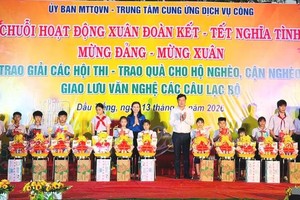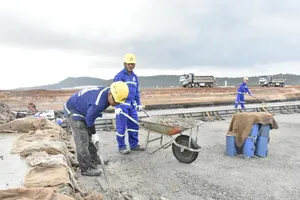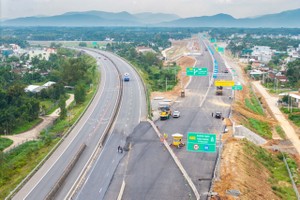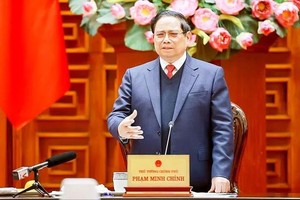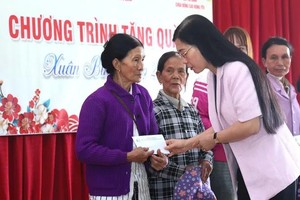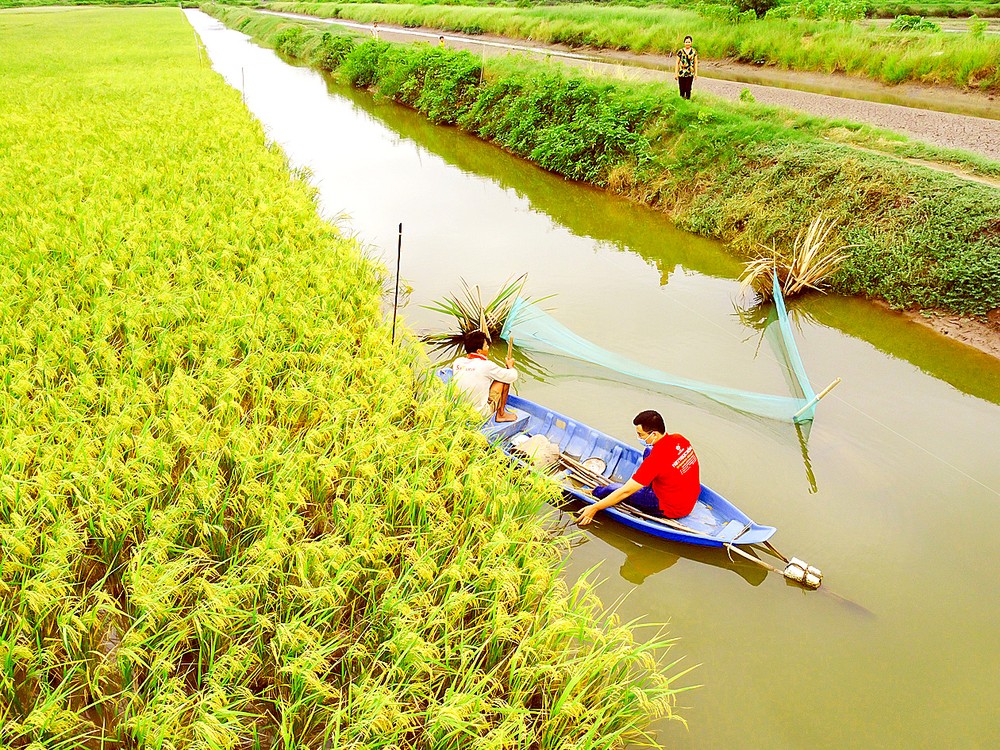
Farmers especially in the Mekong Delta and Central Highlands regions applied new technology and together produced organic agricultural products that made a mark on the market with the help and guidance of local authorities and scientists.
Over the past four years, many members of Tan Long Cooperative in Hau Giang Province’s Vi Thuy District have become accustomed to writing down a production diary in organic rice production. The cooperation at first have 380 hectares but it now expands its area to 600 hectares of farmland. Deputy Director Nguyen Van Thich of Tan Long Cooperative shared that last winter-spring season, businesses placed orders to buy rice from the cooperative at a price of VND8,000-VND9,000 per kg.
Currently, Vi Thuy clean rice products are displayed at 10 agents in the Mekong Delta. The cooperative is connecting with a business to export in the near future. Farmers of the cooperative are excited to switch to writing down production diaries on their smartphones.
Noticeably, many farmers in the Dong Thap Muoi region of Dong Thap Province are also applying the organic rice production model. Director Mai Thanh Liem of Phu Tho Agricultural Cooperative in Tam Nong District said that in the beginning, many farmers were hesitant, but after seeing the outcomes of organic agriculture that they both grow clean rice and protect the environment, they have been delighted to take part in the special agriculture. Currently, the circular organic rice production model associated with traceability at the cooperative has a scale of 10 hectares for every eight households.
Meanwhile, farmers in Trung Ngai Commune of Vinh Long Province also switched from growing rice as per traditional methods to organic agriculture. Director Doan Van Tai of Tan Dat Agricultural Production and Services Cooperative is a pioneer in doing organic agriculture in the province because he wanted to find sustainable rice production.
Director Tai visited many provinces and cities in the Mekong Delta and the Central regions while seeking consultation from scientists at the Mekong Delta Rice Institute and universities in Ho Chi Minh City to learn about rice production experience. To date, Tan Dat Agricultural Production and Services Cooperative has built a 100-ha raw material area for growing organic rice with 65 farmer households participating in production. Of which, about 30 hectares of paddy fields have been certified organic according to four leading international standards such as USDA (USA), EU (Europe), JAS (Japan) and COR (Canada).
Recently, many agricultural cooperatives in Dong Thap Province have also focused on developing organic agriculture in a sustainable way; for instance, organic growing of the Cat Chu mango in Tinh Thoi Commune and Hoa An Commune in Cao Lanh City with a scale of more than 32 hectares of 44 participating households. Each ha achieves a yield of more than 9 tons and growers achieved VND37.9 million a ha. In addition, seven farmer households also planted lotus as per the organic method in Hung Thanh Commune of Thap Muoi District with a scale of 20 hectares.
Wet-rice cultivation has low productivity; therefore, over the years, farmers in Pro Commune of Don Duong District have converted to growing water chestnuts with an area of more than 300 hectares, helping people's lives stabilize. Director Ton Trung Son of Pró Water Chestnut Cooperative revealed that the government provided material and technical support, so the cooperative converted 24.5 hectares to growing organic water chestnuts and the results were positive.
According to the Department of Agriculture and Rural Development of Lam Dong Province, the locality currently has more than 1,579 hectares of certified organic cultivation, of which more than 270.6 hectares are certified according to Vietnamese standards and 1,308.4 hectares are certified as per international standards.
Resident Le Van Vuong in Buon Ma Thuot City of Dak Lak Province who owns an organic coffee garden said that in the past, his family also cultivated coffee in a normal inorganic way. Therefore, productivity is unstable and coffee is often affected by pests and diseases. In 2015, Mr. Vuong converted 1.4 hectares of coffee to a close organic production process. He has so far linked with 13 households and two cooperatives to develop 65 hectares of organic coffee materials.
Currently, responsible agencies in Dak Lak Province have deployed many organic agricultural production models, which have initially brought positive outcomes. According to a leader of the Dak Lak Center for Agricultural Extension - Plant Varieties and Aquaculture, the locality is coordinating with district agricultural extension stations to deploy the organic coffee production model for the business in three districts on an area of 9.5 hectares with 20 participating households. After nearly one year of implementation, the coffee gardens are growing well, with few pests and diseases. Farmers harvest around 3-4 tons of beans a ha.
Similarly, the Tu Mo Rong Agricultural and Herbal Products Cooperative in Kon Tum Province cooperates in growing and purchasing turmeric, ginger, lemon, and grapefruit products with 37 households. In 2022 and 2023, the cooperative purchased 36 tons of turmeric, ginger, lemon, and grapefruit for deep processing for export to Europe. The initial success will pave the way for future expansion of the organic production area for exports of more agricultural products to many other countries, said Mr. Ha Van Phuong, Director of the Cooperative.
Chairman Vo Trung Manh of the Tu Mo Rong District People's Committee said that thanks to organic production, medicinal herbs in the area have been exported abroad, bringing high incomes to growers.
According to the Kon Tum Department of Crop Production and Plant Protection, the locality has developed four groups of agricultural products that meet the standards of organic agriculture in association with building link chains and consumption. Organic production has brought good incomes for growers. For instance, vegetable and fruit farmers have earned an average profit of about VND1 billion (US$40,021) per ha after three crops.





